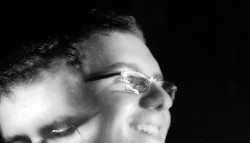 Bipolar disorder is characterized by the sudden shift in mood, from the manic phase to the depressive phase. Men and Women are equally affected by bipolar disorder but symptoms of bipolar disorder in men are different from women. Men tend to have an early onset of symptoms compared to women. Indicators of bipolar disorder in men usually start with the manic phase symptoms. Furthermore, males also do not seek help whenever symptoms of bipolar disorder arise, thus, their condition gets worse and they are more prone to commit suicide than women.
Bipolar disorder is characterized by the sudden shift in mood, from the manic phase to the depressive phase. Men and Women are equally affected by bipolar disorder but symptoms of bipolar disorder in men are different from women. Men tend to have an early onset of symptoms compared to women. Indicators of bipolar disorder in men usually start with the manic phase symptoms. Furthermore, males also do not seek help whenever symptoms of bipolar disorder arise, thus, their condition gets worse and they are more prone to commit suicide than women.

Symptoms of bipolar disorder in men
The symptoms of bipolar disorder in men are typified by acting out compared to women; so there is a big difference in the symptoms manifested. Because of this, bipolar disorder in males is comparatively easy to recognize.
The symptoms of bipolar disorder in men during the manic phase include the following:
- Engaging in brawls or screaming at the people surrounding him, making these symptoms of bipolar disorder in men difficult to handle. They often end up brought to jail or in the hospital.
- Drinking hard liquor and alcoholic drinks to cope with the manic feeling is common. Some men abuse alcohol exposing him to risks of doing untoward things to those around him, such as violence and even rape.
- Doing reckless activities that can threaten his life as well as other persons’ lives. The person should be watched over carefully as his actions may result to serious harm to himself and others.
- Tendency to talk grandiose things about his life and brag about his own achievements to everybody who would listen.
- There is either an extreme feeling of happiness or an extreme feeling of anger towards himself and others.
- One of the symptoms of bipolar disorder in men is rapid talking resulting to misunderstanding or incomprehensible words spoken.
- There are so many ideas cropping up in his mind that he cannot apply all the ideas at the same time.
- Because of the “high” feeling, the man usually sleeps lesser. But even with the lack of proper sleep and rest, he does not feel weak.
These are some of the symptoms of bipolar disorder in men during the depressive phase:
- The man loses the energy to perform necessary activities, especially doing personal hygiene and household chores.
- Extreme sadness is felt by the man that he barely goes out of the house and does not mingle with others.
- The man feels restless because of severe depression. Restlessness may result to a feeling of irritability because of decreased time to rest. His mind can no longer work properly because of the lack of rest.
- The person may sleep less or more than usual, depending on the situation.
- There can be changes in his appetite. Depressed patients usually want to eat more to cope with the depressed feeling. But others want to eat less because he does not have the energy to eat.
- Symptoms of bipolar disorder in men often include a guilt feeling to something he has done before. This would bother him until he cannot take it anymore.
- He would suffer from hopelessness and is no longer motivated to live his life.
- Shows less interest in participating in activities that once interested him.
- Having unnecessary worries and anxiety
- The symptoms of bipolar disorder in men with signs of depression often end up in suicidal ideation because of the sadness felt. Close watch should be kept on the person with these morbid thoughts as he may eventually be propelled to act on these tendencies and actually try to commit suicide.
Bipolar disorder treatment in men
The symptoms of bipolar disorder in men cannot be cured but can be controlled only through the right medications and therapies. The drugs given to manage the symptoms of bipolar disorder in men are mood stabilizers such as Lithium, anti-depressants (during the depressive phase) such as Zoloft, and antipsychotic medications (during the manic phase) such as Resperidone. Together with the medications, therapies such as psychotherapy (talking to the patient to know the cause of his bipolar disorder) and family therapy (sessions done with the patient and his family together) can contribute to the effectiveness of the treatment to control the symptoms of bipolar disorder in men.
Health care providers and the people close to the patient, such as the family, should notice and deal with the symptoms of bipolar disorder in men without delay. This is especially true during the manic phase, because men in manic phase are more difficult to handle and may do harm to his self and others. Because men do not consult immediately when experiencing symptoms of bipolar disorder, the family members can help the person realize the importance of proper diagnosis and treatment.